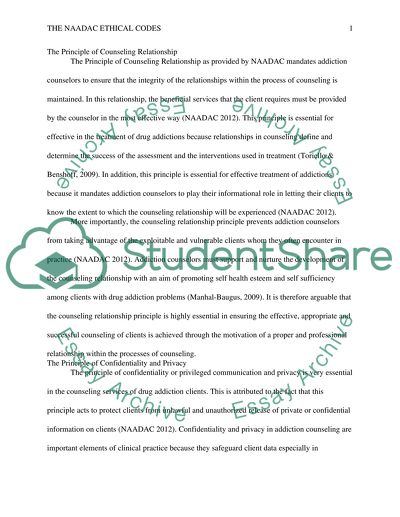Cite this document
(“The NAADAC Ethical Codes Research Paper Example | Topics and Well Written Essays - 2500 words”, n.d.)
Retrieved from https://studentshare.org/psychology/1402576-the-naadac-ethical-codes
Retrieved from https://studentshare.org/psychology/1402576-the-naadac-ethical-codes
(The NAADAC Ethical Codes Research Paper Example | Topics and Well Written Essays - 2500 Words)
https://studentshare.org/psychology/1402576-the-naadac-ethical-codes.
https://studentshare.org/psychology/1402576-the-naadac-ethical-codes.
“The NAADAC Ethical Codes Research Paper Example | Topics and Well Written Essays - 2500 Words”, n.d. https://studentshare.org/psychology/1402576-the-naadac-ethical-codes.


